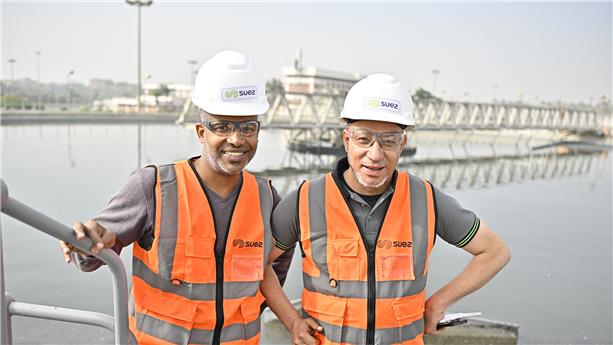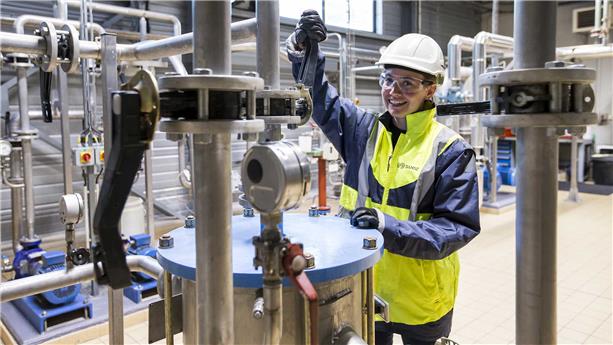
The Fondation SUEZ supports a program analyzing the spread of the SARS-CoV-2 virus in high and low incidence areas of COVID-19 in Senegal
> Project led by the Dakar Pasteur Institute, in association with the Pasteur Institute
Thanks to the support provided by the Fondation SUEZ, sero-epidemiological studies were launched by the Dakar Pasteur Institute in July 2020, as part of the fight against the SARS-CoV-19 pandemic. Thesse comparative studies on the prevalence of anti-SARS-COV-2 antibodies were conducted to better identify the risk factors associated with the spread of SARS-CoV-2 virus in populations resideing in active clusters of high transmission, as well as in areas missing documented proof of local transmission. Thi program is conducted by the Dakar Pasteur Insitute in collaboration with the Ministry of Public Health and Social Action of Senegal (MSAS), the National Blood Transfusion Center of Senegal, and the Pasteur Insitute (Paris).
With its 33 members located on 5 continents (including the Pasteur Institute (Paris) in France and the Dakar Pasteur Institute in Senegal) the scientific community of the Pasteur Network is mobilized to respond to the pandemic infection by the SARS-CoV-2 coronavirus in a logic of international solidarity.
In Senegal, the first case of COVID-19 was diagnosed by the Dakar Pasteur Institute on March 2nd 2020. Since then, the epidemic has progressed very rapidly and the country has faced three successive waves, the last one largely dominated by the emergence and spread of the Delta variant of SARS-CoV-2. Currently, all regions of Senegal (representing nearly 80 health districts) are concerned with 72,977 confirmed cases of COVID-19 and 1,780 deaths recorded as of September 7, 2021. To date, surveillance associated with Covid-19 had focused primarily on symptomatic patients and as a result the full spectrum of different forms of the disease remains poorly known, including the rate of mild or asymptomatic infections that do not require medical attention. As with many new emerging respiratory pathogens, knowledge of the key epidemiological, clinical, virological and immunological characteristics remains limited, increasing the ability of COVID-19 to spread in the human population. This data is essential for understanding the transmission of SARS-CoV-2 in Senegal and the risk factors associated with the spread.
As part of this program, two cross-sectional surveys were conducted in 2020-2021 to monitor exposure to COVID-19 in the population and changes in the seroprevalence of anti-SARS-CoV-2 antibodies in areas with few or no cases, such as the Sokone health district and the villages of Dielmo and Ndiop. This was complemented by a study of the seroprevalence of anti-SARS-CoV-2 antibodies in blood donors in active clusters with high incidence of COVID-19 (such as Dakar and Touba). In addition, complementary serological techniques are being used to detect antibodies to SARS-CoV-2, other coronaviruses that may be circulating in the study areas (OC43, HKU1, 229E, NL63), and malaria parasites (Plasmodium falciparum in particular) that continue to be prevalent in plasma samples collected in the region.
The data from these surveys and analyses will provide information on the spread of the virus in Senegal (urban and rural areas) and the exposure of populations to SARS-CoV-2. The results of the analyses will make it possible to determine the risk factors for infection by comparing the exposures of infected and uninfected individuals. They will strengthen the surveillance of this disease and complement the epidemiological, clinical, and virological data already available at the national level, elements useful to guide the implementation of the control strategies deployed by the Senegalese Ministry of Health.
This project is part of the REPAIR program, a larger program led by the Pasteur Network (Africa Zone) and also supported by the French Ministry of Europe and Foreign Affairs. It is supported through the Covid Emergency Fund created in March 2020 by the Board of Directors of the SUEZ Foundation.
The research of antibodies against malaria parasites and coronaviruses is carried out within the framework of the "CoronaSeroSurv: Serological surveillance of SARS-CoV-2 and seasonal coronaviruses" project financed by the Coronavirus Task Force of the Pasteur Institute.

